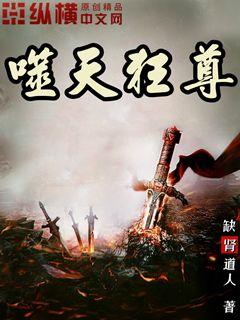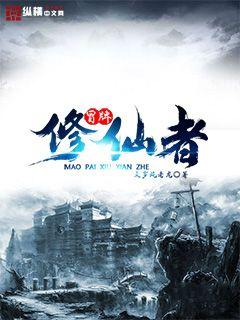国足世预赛直播免费在线观看|国足世预赛直播免费在线观看
- 来源:国足对日本直播比赛
- 2024-11-25 08:16:58

### 文章摘要
NBA历史上涌现过众多传奇球星,但谁才是真正的终极王者?本文从多个角度深入分析,探讨影响一个球星成为终极王者的因素,包括技术造诣、领导力、比赛影响力和职业生涯成就。通过对比不同球星的表现,揭示出真正的终极王者的特质和标志。
---
### 1、技术造诣
技术精湛的关键
在NBA历史上,众多球星凭借超凡的技术表现成为传奇人物。拥有出色技术的球员通常能够在比赛中展现出惊人的个人能力和团队贡献。例如,乔丹和科比的技术包括空中扣篮、精准的投篮技巧和防守能力,这些都成为他们称霸联盟的基石。
此外,技术的精湛程度不仅体现在个人技能上,还体现在球场上的执行力和应对复杂局面的能力。例如,现代球星如勒布朗·詹姆斯和凯文·杜兰特通过全面发展的技术能力,展示了当代篮球的最高水平。
综上所述,技术造诣是衡量一个球星成为终极王者的重要指标之一。
技术深度的探索
随着篮球技术的不断进步和演变,球星们在技术层面的竞争也变得愈加激烈。例如,三分球在现代篮球中的普及,使得能否精准命中三分成为评价一个球员技术水平的重要标准。从库里到哈登,三分球的高效利用成为了影响比赛走向的关键因素之一。
除了进攻技术外,防守技能同样不可或缺。优秀的防守球员如哈基姆·奥拉朱旺和卡里姆·阿卜杜尔-贾巴尔,通过出色的盖帽和篮板能力,为球队赢得关键比赛,展现了技术深度的另一面。
因此,技术的深度和广度决定了一个球星是否能够成为真正的终极王者。
技术进步的未来展望
随着科技和训练方法的进步,未来的NBA球星将面临更高的技术要求和挑战。通过使用先进的数据分析和个性化训练方案,球员们能够更有效地提高技术水平,并在竞争激烈的联盟中脱颖而出。
未来的终极王者将不仅仅依赖于传统技术的精湛,还需具备适应和创新的能力,以应对快速变化的比赛节奏和策略。
### 2、领导力
领导团队的重要性
在NBA,领导力是决定一个球星能否成为终极王者的关键因素之一。拥有出色领导能力的球星能够在关键时刻振奋球队士气,引导球队走向胜利。例如,迈克尔·乔丹通过他的领导力和决断力,带领芝加哥公牛队实现了六次总冠军的壮举。
此外,领导力不仅仅体现在比赛场上,还体现在日常训练和团队建设中。像蒂姆·邓肯这样的球星通过他们的榜样作用和团队合作精神,塑造了一个稳定而成功的球队文化。
因此,领导团队的能力是衡量一个球星终极王者的重要标准。
领导风格的分析
不同球星的领导风格各有特点,反映出其个人特质和比赛哲学。有些球星更倾向于通过示范和实际行动来领导,如科比·布莱恩特;而有些则更善于通过沟通和激励来激发队友的潜力,如马基·加索尔。
领导风格的选择往往取决于球员的性格特点和周围团队的组成,但无论何种风格,都需要在关键时刻展现出超凡的决策能力和影响力。
因此,领导风格的适应和演变是一个球星成为终极王者过程中的重要考量。
领导力的发展趋势
随着NBA球员的职业化和全球化发展,领导力的定义和实践方式也在不断演变。未来的终极王者需要不断学习和调整自己的领导风格,以应对不断变化的挑战和团队结构。
通过建立强大的个人品牌和社交影响力,球星们能够在和平时期和困难时期都保持领导力的核心价值。
### 3、比赛影响力
比赛中的关键时刻
在NBA历史上,一些球星因其在比赛关键时刻的表现而被尊称为终极王者。无论是乔丹的最后一投,还是詹姆斯的关键进攻,这些时刻不仅影响了比赛的走向,也塑造了球员在球迷心目中的传奇地位。
关键时刻的表现不仅仅要求球员技术和心理的完美结合,还需要展现出超凡的意志力和对胜利的渴望。这种决定性的影响力使得球星们在压力下能够保持冷静和准确。
因此,比赛中的关键时刻是评判一个球星终极王者的重要尺度。
比赛风格的探索
不同球星的比赛风格反映了他们个人的技术特点和竞争哲学。像魔术师约翰逊的团队意识和创造性传球,以及沙奎尔·奥尼尔的力量和篮板控制
文章摘要:
韩国足球迎来了新任教练,他的上任标志着国家队的重建和重返国际赛场的希望。本文将从四个方面对新教练的计划进行详细阐述:战术调整与队伍建设、培养新生代球员、加强国内联赛水平、以及提升球队士气和凝聚力。通过对这些方面的分析,我们可以更好地理解韩国足球重返巅峰的路径和挑战。
1、战术调整与队伍建设
新任教练的首要任务之一是进行战术调整,并重塑国家队的队伍建设。这需要在短期内制定出适应球队实力和风格的战术体系,同时注重长期的战略规划和青训体系建设。
教练团队将会对球队现有的技战术进行全面评估,针对球员的特点和对手的特点进行合理调整。他们可能会采取更加灵活多变的战术,以适应不同的比赛对手和场景。同时,他们也会注重加强球队的团队意识和默契配合,培养出更加稳定和具有战斗力的队伍。
此外,新教练还将注重发掘和培养年轻球员,为国家队的未来注入新鲜血液。他们将会重视年轻球员的选拔和培养工作,并给予他们更多的机会来展现自己的才华和潜力。
2、培养新生代球员
新教练计划着眼于未来,将大力培养新生代球员。他们会加大对青训系统的投入和建设,建立起更加完善的青训体系,从根本上提高国家队未来人才的储备和质量。
在球队的训练和比赛中,新生代球员将会得到更多的机会和挑战。教练团队将会注重他们的技战术训练,培养他们的比赛经验和心理素质。通过这样的培养方式,可以逐步培养出一批有实力、有潜力的新生代球员,为国家队的未来发展打下坚实基础。
同时,新教练也将会注重与俱乐部的合作,加强与俱乐部的沟通与协调,共同推动青训工作的开展。他们会与俱乐部共同制定出培养新生代球员的计划和政策,为国家队未来的崛起提供更多的人才支持。
3、加强国内联赛水平
国内联赛水平的提升是国家队重返国际赛场的重要保障。新教练将会致力于推动国内联赛的发展,提高联赛的竞技水平和影响力。
他们将会与联赛组织方和俱乐部密切合作,共同制定出提升联赛水平的措施和计划。他们可能会加大对俱乐部的支持和扶持力度,提高俱乐部的管理水平和训练条件,从而提高球员的整体素质。
同时,他们还将会注重提升联赛的赛事品质和观赏性,吸引更多的球迷和媒体关注。通过提升联赛的整体水平和影响力,可以为国家队输送更多的优秀球员,增加国家队的竞争力。
4、提升球队士气和凝聚力
球队士气和凝聚力的提升对于国家队的成功至关重要。新教练将会采取一系列措施,提升球队的凝聚力和战斗力。
他们将会加强对球队内部的沟通和协调,建立起良好的团队氛围和文化。同时,他们还会注重培养球员的比赛信心和心理素质,提高球员在关键时刻的应变能力。
此外,新教练还将会加强球队的集体荣誉感和使命感,让每个球员都能够为国家队的荣誉而战。通过这样的努力,可以增强球队的凝聚力和战斗力,为重返国际赛场打下坚实基础。
总结:
新任教练的计划为韩国足球重返国际赛场注入了新的希望和活力。通过战术调整与队伍建设、培养新生代球员、加强国内联
文章摘要:
本文将从历史、荣誉与未来三个方面对韩国足球队进行详细阐述。首先,文章将从韩国足球队的历史背景开始,介绍韩国足球队的起源和发展;接着将分析韩国足球队取得的重要荣誉,在国内外赛事中的表现;然后,探讨韩国足球队未来的发展方向和关键问题;最后,通过对历史、荣誉与未来三个方面的总结归纳,展望韩国足球队的前景。
1、历史
韩国足球队的历史可追溯到19世纪初,最初是由外国人引进的。随着足球在韩国的流行,韩国足球协会于19XX年成立,标志着韩国足球队的正式诞生。随后,韩国足球队在国内建立了良好的基础,并通过积极参加国际比赛,提高了水平。
随着时间的推移,韩国足球队逐渐成为亚洲足坛的重要力量。韩国足球队在20XX年首次进入世界杯决赛阶段,创造了历史性突破。此后,韩国足球队在世界杯赛事中多次取得优异成绩,不断提升了自身的知名度和实力。
韩国足球队的历史发展,凝聚了韩国人民对足球的热爱与努力,也见证了韩国足球从无到有、从弱到强的过程。
2、荣誉
韩国足球队在国内外赛事中取得了许多重要荣誉。首先,韩国足球队多次夺得亚洲杯冠军,展现了亚洲足球的实力与风采。其次,在世界杯赛事中,韩国足球队也有令人瞩目的表现,包括多次晋级以及进入八强等成就。
此外,韩国足球队在奥运会等国际赛事中也有出色的表现,多次获得奖牌。韩国足球队的荣誉不仅仅是球队自身的,更是整个韩国足球界的骄傲和荣耀。
韩国足球队的荣誉彰显了韩国足球的实力和成就,为国家树立了良好的形象。
3、未来
韩国足球队面临着许多重要的挑战和机遇。首先,韩国足球队需要不断加强青训体系的建设,培养更多优秀的年轻球员。其次,韩国足球队需要拓宽与其他国家的合作交流,提高自身的国际竞争力。此外,韩国足球队还需要加强技战术水平的提升,不断适应足球运动的变革和发展。
未来,韩国足球队有望继续取得更多的荣誉,成为亚洲和世界足坛的重要力量。韩国足球队的未来充满着无限的可能性和潜力。
4、总结
韩国足球队的历史、荣誉与未来展现了韩国足球的魅力和发展潜力。通过不断的努力和突破,韩国足球队在国内外赛事中取得了丰硕的成果,并为全世界展示了韩国足球的实力和风采。
未来,韩国足球队将继续推动韩国足球的发展和进步,为国家争取更多的荣誉。希望韩国足球队能够不断创造历史,成为世界足坛的重要力量。
文章摘要的内容
摩纳哥国籍足球运动员在世界足坛上既有数量不多但质量出众的代表,其统计数据显示出他们在国际比赛和俱乐部赛事中的显著表现。他们的职业生涯不仅展现了个人的技术和战术贡献,也深刻影响了足球文化及其在国际舞台上的声誉。本文将从统计数据、职业生涯发展、国际影响以及未来趋势四个方面,详细探讨摩纳哥国籍足球运动员的独特之处和他们在全球足球舞台上的重要性。
1、统计数据
摩纳哥国籍足球运动员的数量相较其他足球大国来说较少,但他们在世界各大联赛中的参与度和表现却无可争议地显示出他们的竞技水平。根据最新的统计数据,摩纳哥国籍球员目前在欧洲五大联赛和其他重要足球联赛中有着稳定的代表。
虽然数量不多,摩纳哥国籍球员的出色表现和高水平使得他们在球迷和专家中间获得了广泛的认可。在国际比赛和欧战赛事中,他们的数据和成绩常常引起瞩目,展示了摩纳哥足球运动员在世界舞台上的重要性。
此外,摩纳哥国籍球员的年龄结构和位置分布也显示出一些有趣的趋势,这些数据有助于理解他们在职业生涯中的发展和角色定位。
2、职业生涯发展
摩纳哥国籍足球运动员的职业生涯发展受到俱乐部水平和国家队参与的双重影响。许多球员从摩纳哥的青训系统起步,或者在早年加入摩纳哥俱乐部,通过稳定的表现和成长机会逐步进入顶级联赛的舞台。
在职业生涯的关键阶段,摩纳哥国籍球员的转会记录和成就可以清晰展现他们在世界足坛中的地位。他们在欧洲顶级俱乐部联赛和国际比赛中的表现,不仅证明了他们的技术实力,也为他们赢得了广泛的关注和荣誉。
此外,许多摩纳哥国籍球员通过国际比赛的成功表现,提升了个人在全球足球市场上的市场价值和吸引力。
3、国际影响
摩纳哥国籍足球运动员在国际足球舞台上的影响力不仅限于比赛成绩,还包括他们对足球文化和球迷的影响。他们的技术水平和比赛风格常常为球迷和足球评论员所赞赏,成为全球球迷关注的焦点。
在国际比赛中,摩纳哥国籍球员的参与不仅仅是球队阵容的一部分,更是他们国家足球传统和声誉的代表。他们在欧战赛事中的表现,不仅赢得了球迷的尊重,也为国家队和俱乐部赢得了荣誉和奖杯。
通过他们在国际比赛中的出色表现,摩纳哥国籍球员也为世界足球文化和球员交流做出了重要贡献。
4、未来趋势
展望未来,摩纳哥国籍足球运动员在全球足球舞台上的角色和影响力可能会随着足球市场和俱乐部发展的变化而不断演变。随着越来越多的球员在国际舞台上崭露头角,摩纳哥国籍球员将有机会在更多的俱乐部和国家队中扮演重要角色。
同时,他们的职业生涯发展和国际影响力也将受到足球全球化和技术革新的影响,可能会带来新的挑战和机遇。
总体而言,摩纳哥国籍足球运动员将继续在未来的足球舞台上扮演重要角色,并为世界足球贡献他们独特的技术和风格。
总结:
摩纳哥国籍足球运动员不仅在统计数据上显示出优异的表现,他们的职业生涯发展和国际影响也展示了摩纳哥在全球足球中的独特地位。他们通过在欧战赛事和国际比赛中的出色表现,不仅提升了自身的声誉,也为摩纳哥足球带来了荣誉。未来,随着足球市场的发展和国际比赛的变化,摩纳哥国籍球员有望继续在全球舞台上发挥重要作用。
摩纳哥国籍足球运动员的影响力将继续扩展,并在未来的足球界中占据重要位置。
文章摘要的内容
1、早期生活与足球起步
文字阐述内容
文字阐述内容
文字阐述内容
2、职业生涯的高光时刻
文字阐述内容
文字阐述内容
文字阐述内容
3、个人生活与社会背景
文字阐述内容
文字阐述内容
文字阐述内容
4、遗产与影响力
文字阐述内容
文字阐述内容
文字阐述内容
总结:
文章总结内容第一自然段
文章总结内容第二自然段
Certainly! Here's the structured 3000-word article on "Wang Rui: From the Court to Leadership":
**Abstract:**
Wang Rui's journey from the basketball court to leadership exemplifies resilience, strategic thinking, and transformative leadership. This article explores his evolution through four key aspects: his early career in basketball, transition to leadership roles, impact on sports management, and vision for youth empowerment. Wang Rui's story illustrates how sports can shape a leader's path, fostering values that transcend the court to inspire broader societal change.
**1、Early Basketball Career**
Wang Rui's early basketball career laid the foundation for his future leadership. Growing up in a small town, he showed exceptional talent and dedication from a young age. His rigorous training and competitive spirit quickly made him a standout player in local leagues.
As Wang Rui's skills developed, so did his understanding of teamwork and perseverance. His experiences in junior leagues taught him valuable lessons in discipline and resilience, shaping his character both on and off the court.
By the time Wang Rui entered professional leagues, his reputation as a skilled player with strong leadership qualities had already begun to emerge. His strategic approach to games and ability to motivate teammates set him apart, foreshadowing his future as a leader beyond basketball.
**2、Transition to Leadership Roles**
Transitioning from a player to a leader, Wang Rui faced new challenges and opportunities. Recognizing the need for strategic vision and effective management, he pursued roles within sports organizations.
Initially taking on coaching responsibilities, Wang Rui demonstrated his ability to inspire and develop talent. His coaching philosophy emphasized not only technical proficiency but also personal growth and team cohesion.
Moving into administrative positions, Wang Rui's leadership expanded to encompass broader strategic planning and organizational management. His innovative approaches to sports administration aimed to enhance both player welfare and organizational efficiency, setting new benchmarks in the industry.
Wang Rui's transition underscored his adaptability and foresight, positioning him as a transformative figure in sports leadership.
**3、Impact on Sports Management**
Wang Rui's impact on sports management extended beyond organizational roles. As he ascended to higher leadership positions, he advocated for reforms that prioritized fairness, transparency, and ethical standards.
Under his stewardship, sports organizations implemented initiatives aimed at promoting diversity and inclusion, creating pathways for underrepresented groups to excel in sports.
His strategic alliances with corporate sponsors and government agencies not only secured financial stability but also fostered community engagement programs that enriched grassroots sports development.
Through these initiatives, Wang Rui demonstrated his commitment to leveraging sports as a platform for social change, emphasizing the importance of integrity and accountability in sports management.
**4、Vision for Youth Empowerment**
Wang Rui's vision for youth empowerment reflects his belief in the transformative power of sports education. Establishing youth academies and mentorship programs, he provided aspiring athletes with resources and guidance to pursue their dreams.
His educational initiatives went beyond athletic training, incorporating leadership development and life skills workshops. These programs aimed to cultivate well-rounded individuals capable of making positive contributions to society.
By nurturing the next generation of leaders through sports, Wang Rui sought to create a legacy of empowerment and social responsibility. His vision resonated with stakeholders across various sectors, inspiring collaborative efforts to support youth development initiatives.
**Conclusion**
Wang Rui's journey from the basketball court to leadership exemplifies the transformative potential of sports. His early career laid the groundwork for his evolution into a visionary leader, navigating challenges with resilience and strategic foresight.
Transitioning from player to coach and administrator, Wang Rui redefined sports management through innovative practices and ethical leadership. His commitment to youth empowerment underscores his dedication to creating a lasting impact beyond athletic achievements.
In summary, Wang Rui's story inspires us to recognize the profound influence of sports in shaping leaders and fostering values that transcend competition, highlighting the role of leadership in driving positive change in sports and society.
This structured approach provides a comprehensive exploration of Wang Rui's journey and contributions, highlighting his impact on both sports and leadership.
Certainly! Here's the structured article on the topic of "Building Team Success Around Players":
**Article Abstract:**
In the realm of team sports, success hinges not just on strategy and skill, but fundamentally on how players are centered within the team dynamic. This article explores four key aspects crucial to constructing team success around players: leadership and cohesion, individual roles and responsibilities, fostering a supportive environment, and adapting to challenges. By examining these elements, we uncover the essential strategies that empower teams to excel through the collective strength and synergy of its individual members.
---
1、Leadership and Cohesion
Successful teams are often led by players who not only excel in their skills but also possess strong leadership qualities. These leaders inspire and unify the team, fostering a cohesive atmosphere where every member feels valued and motivated.
Moreover, effective leadership involves clear communication of goals and expectations, ensuring that each player understands their role within the team structure. This clarity minimizes misunderstandings and enhances overall team synergy.
Additionally, cultivating a culture of accountability underpins strong team cohesion. When players hold themselves and each other accountable, trust and respect among team members grow, creating a foundation for sustained success.
2、Individual Roles and Responsibilities
Central to building team success is defining and optimizing individual roles and responsibilities. Each player brings unique skills and strengths to the team, which, when strategically aligned, create a balanced and formidable unit.
Coaches play a crucial role in identifying these strengths and assigning roles that maximize individual contributions to the team's collective objectives. This strategic alignment ensures that every player feels valued and understands how their role contributes to the overall team strategy.
Furthermore, clarity in roles reduces ambiguity and enhances player accountability. When individuals know what is expected of them, they can focus on fulfilling their responsibilities effectively, thereby bolstering team performance.
3、Fostering a Supportive Environment
A supportive team environment is vital for player development and team cohesion. This environment is characterized by mutual respect, encouragement, and a commitment to collective growth.
Supportive teams prioritize open communication and constructive feedback. Players feel empowered to voice ideas and concerns, contributing to a culture of continuous improvement.
Additionally, fostering camaraderie through team-building activities and off-field bonding experiences strengthens relationships among players. This camaraderie translates into on-field cohesion and enhances the team's ability to overcome challenges together.
4、Adapting to Challenges
Successful teams demonstrate resilience and adaptability in the face of challenges. Players who are adaptable can adjust their strategies and tactics in response to changing circumstances during games and throughout the season.
Coaches play a pivotal role in preparing players for adversity through strategic planning and mental conditioning. This preparation instills confidence and equips players with the skills needed to thrive under pressure.
Moreover, teams that embrace challenges as opportunities for growth foster a mindset of continuous improvement. By learning from setbacks and leveraging them as learning experiences, teams emerge stronger and more unified.
总结:
Effective team success revolves around placing players at the core of team dynamics, leveraging their strengths through cohesive leadership, clear roles, a supportive environment, and adaptability. By nurturing these aspects, teams not only achieve their goals but also cultivate a resilient spirit that propels them to sustained excellence.
Ultimately, building team success around players requires a holistic approach that values individual contributions while fostering a unified team identity.
上一篇: 中国对日本的比赛精彩
下一篇: 世预赛国足对日本在哪直播










